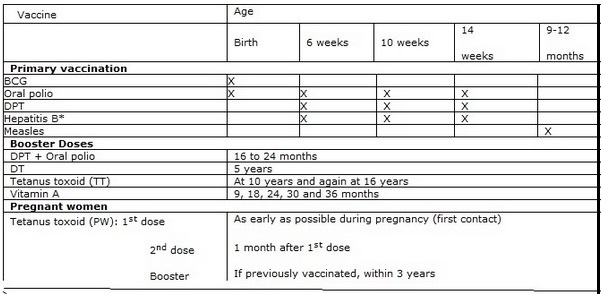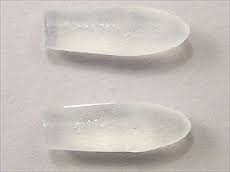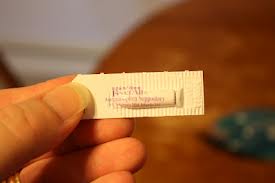Vaccines for your Baby – Immunization Schedule
 A lot of emphasis is mentioned by elders in administering vaccines for your growing baby. A new born baby has to follow the immunization schedule to remain healthy and free from infections. When the mother and child is being discharged from the hospital after birth, the baby’s doctor will give a briefing of the forthcoming immunization schedule and when to visit the hospital.
A lot of emphasis is mentioned by elders in administering vaccines for your growing baby. A new born baby has to follow the immunization schedule to remain healthy and free from infections. When the mother and child is being discharged from the hospital after birth, the baby’s doctor will give a briefing of the forthcoming immunization schedule and when to visit the hospital.
You may be worried to even visualize your baby going thru’ the pain of so many injection. The doctor responsible will hand over a tracking card which contains the proposed immunization schedule for reference and future action. Remember these are mandatory vaccines to keep sickness at bay. Understand which are the mandatory vaccines and how important the vaccines are for your baby.
Natural immunity for a baby
God has gifted every human with miracle fighters called antibodies which recognize anything that is ‘foreign’ to our body and destroy it. The greatest advantage is that the immunity system identifies these enemies that come back to attack and destroys them .In this way immunity is developed to the particular disease. The baby’s immunity is further improved by the mother’s breast milk in the first 4 to 6 months.
Then why to give vaccines for the baby?
There are different diseases which can be deadly in children like polio, TB, Diphtheria, Tetanus, Measles, Hepatitis B. Vaccines are given to babies to protect them and create acquired immunity to the disease. As is said Prevention is better than cure. Administer the vaccines in advance and prevent the babies from deadly diseases.
What is the immunization schedule and for what diseases?
Immunizations against common childhood diseases has been an integral component of mother and child health services in India since the adoption of the primary health care approach being reinforced by the Declaration of health Policy. Vaccines recommended by the Government and available in Government hospitals at reduced costs include:
BCG vaccine (mandatory) – Given as an intradermal injection soon after birth; prevents TB (Tuberculosis). Can cause slight swelling at the site of the injection, do not apply any medicine to the site. BCG : Bacillus Calmette Guerin
OPV vaccine (mandatory) – Given orally as several doses till the age of five, this prevents polio. Poliomyelitis is a disease which affects the nerves causing muscle weakness and paralysis. It is given free of cost to all children below five years of age under the Pulse Polio program. OPV: Oral Polio Vaccine
DPT vaccine (mandatory) – Given as an intradermal injection, it prevents three diseases Diphtheria, Pertrusis and Tetanus.
a. Diphtheria is an infection which starts with a ‘sore throat’ but can rapidly lead to formation of toxins (poisons) causing life-threatening complications.
b. Pertrusis (whooping cough) affects the lungs in children below 15 months of age. Starting with cold and cough, it progresses to episodes of coughs with a ‘whoop’. Complications include pneumonia, brain damage and death.
c. Tetanus starts when a wound is infected with bacteria found in soil, it affects the body’s muscles and nerves. The toxin produced by the bacteria causes muscle spasms, interferes with nerves and can be fatal.
Measles vaccine (mandatory) – The vaccine is given subcutaneously (just below the skin) as the baby completes nine months. A very contagious viral infection, measles starts as cold and cough with rashes progressing from the hairline downwards. It can progress to diarrhoea, pneumonia, infection of the brain leading to death, if untreated.
The immunization schedule as per the Universal Immunization Programme in India:
 MMR vaccine (mandatory) – The vaccine is given as the baby completes 15 months. It prevents Measles, Mumps and Rubella. There may be slight fever, joint pain or stiffness after the vaccination.
MMR vaccine (mandatory) – The vaccine is given as the baby completes 15 months. It prevents Measles, Mumps and Rubella. There may be slight fever, joint pain or stiffness after the vaccination.
Note: MMR vaccine (mandatory) – The vaccine is given as the baby completes 4 years.
DPT Booster (mandatory) – The vaccine is given as the baby completes 18 months, it prevents three diseases Diphtheria ( upper respiratory illness), Pertrusis and Tetanus. There may be mild fever, pain & swelling at the injection site.
Typhoid (mandatory) – The vaccine is given as the baby completes 2 years, it prevents Typhoid, a fever caused by Typhoid bacillus.
DPT Booster (mandatory) – The vaccine is given as the baby completes 5 years, it prevents three diseases Diphtheria ( upper respiratory illness), Pertrusis and Tetanus. There may be mild fever, pain & swelling at the injection site.
Remember to complete vaccines on time and keep the nation free of diseases and the future generations in safe hands.
Role of Suppositories for Babies
 When babies are sick and running high temperature, the parents are worried and sometimes will not be in a position to respond. The babies are unable to express their discomfort, they are restless and keep crying. When the babies are small only a few months old , they will not be able to take medicines orally. In this situation suppositories for babies are the best option. Suppositories for babies are safe and effective too.
When babies are sick and running high temperature, the parents are worried and sometimes will not be in a position to respond. The babies are unable to express their discomfort, they are restless and keep crying. When the babies are small only a few months old , they will not be able to take medicines orally. In this situation suppositories for babies are the best option. Suppositories for babies are safe and effective too.
Types of suppositories:
Suppositories are often linked to constipation and hard stools. Two types of suppositories are available in the market, glycerine suppository for easing out constipation problems and the second one is paracetamol suppository which is vital to bring down high fever too. Suppository is one of the most effective and safe means to give medication to babies.
- Glycerine Suppository:
Glycerine suppository is used as a laxative to help babies suffering with constipation. Glycerin suppository is a small missile shaped capsule which is inserted inside the babies rectum. This is recommended when the baby has not passed stool for more than 4 to 5 days, baby is suffering with abdominal pain and the stools are dark colored and solid hard. At times there can be a cut to the anal lining due to tear. Consult a doctor before situation becomes worse. Glycerin suppository is administered for babies that are few weeks old too. It is safe and effective.
Glycerin suppositories are available at all pharmacy stores. You need to insert the suppository just half-inch inside the babies rectum. It behaves like a hyper-osmotic laxative and irritates the inner lining of the intestine. This causes an excess flow of water in the intestine which makes the stool soft and initiates bowel movement within few minutes. The pediatrician may also advise to cut the capsule into small pieces, follow doctors instructions. Glycerine suppository relieves severe constipation problems in babies.
- Paracetamol Suppository:
Paracetamol suppository is used to bring down fever in babies. Paracetamol suppository is found with different names in the market. Although the suppositories are available for over the counter purchase, but it is recommended that you consult the doctor to understand the correct dosage corresponding to the age of the baby.
 Paracetamol suppositories comes under the category of pain killers. Paracetamol suppository is used to cure fever and relieve pain for the baby. It is given to babies less than a year old for whom oral medication is difficult to induce. When you insert paracetamol suppository inside the rectum of your baby it is absorbed by the intestine which further mixes it with the blood and results in a quick relief. The number of suppository depends on the baby’s age and weight. Avoid introducing suppository for a baby less than 3 months old, you need to consult the doctor. Inform the doctor of any other medical ailments the baby has and any medication the baby is taking. This will help the doctor arrive at the right solution and dosage.
Paracetamol suppositories comes under the category of pain killers. Paracetamol suppository is used to cure fever and relieve pain for the baby. It is given to babies less than a year old for whom oral medication is difficult to induce. When you insert paracetamol suppository inside the rectum of your baby it is absorbed by the intestine which further mixes it with the blood and results in a quick relief. The number of suppository depends on the baby’s age and weight. Avoid introducing suppository for a baby less than 3 months old, you need to consult the doctor. Inform the doctor of any other medical ailments the baby has and any medication the baby is taking. This will help the doctor arrive at the right solution and dosage.
Paracetamol suppository is recommended for babies having seizures with high temperature. The introduction of suppository will bring down the body temperature immediately.
How to administer Suppository to Babies?
You may be worried on how to dispense the long capsule for the baby. The suppository can be cut and inserted, do follow the doctors instructions. The baby will not be hurt with the suppository inserted as they are very small. As soon as the suppository is inserted, they dissolve within few seconds and start working.
Instructions to be followed :
- If the suppository is too soft to insert, then place it inside the fridge for 15 minutes or run cold water over the packet of suppository.
- Wash your hands nicely with the soap.
- Make your baby lie down on a flat bed / surface.
- Take the suppository from the packet and cut them into pieces according to the dose suggested by your doctor.
- Wear your gloves and insert approximately half-inch of the suppository gently inside the rectum of the baby.
- Keep your fingers inside for few minutes and then take your finger out.
- Let your baby lie down for few minutes and by that time discard the gloves and wash your hand properly.
You will be able to see the instant action. Be ready for the bowel movement in case of glycerin suppositories. Keep cleaning cloth and accessories ready as there will be a huge pooh. You will also see the dip in temperature and relief in case of paracetamol suppository.
Possible Side Effects of Suppository
There are side effects of suppositories administered in babies. This is observed in babies who are prone to constipation issues. Baby is not trying the natural urge for stools. The baby gets accustomed to inserting the suppository and the natural drive for poop is nullified. The child may cry after the pop out because of the discomfort, inflammation and burning sensation in the rectum. It may result in diarrhea for sometime or may result in dehydration because of the excess flow of water.
Common side effect is redness near the rectum. Rare side effect is fever, ulcer in mouth, liver problems and bleeding.
To avoid such side effects, it is advised to consult the doctor before giving any suppositories. As side effects are very rare they may or may not be observed.
Storage guidelines:
All the suppository should be stored in a cool and dry place and away from direct sunlight.
To conclude it is always better to get relief from constipation naturally. Include lots of water in your baby’s diet and avoid giving him food which can cause constipation. For instant relief you can definitely opt suppositories. But always target on long term solutions. If you know of any other tips on suppositories, do mention in comments.









